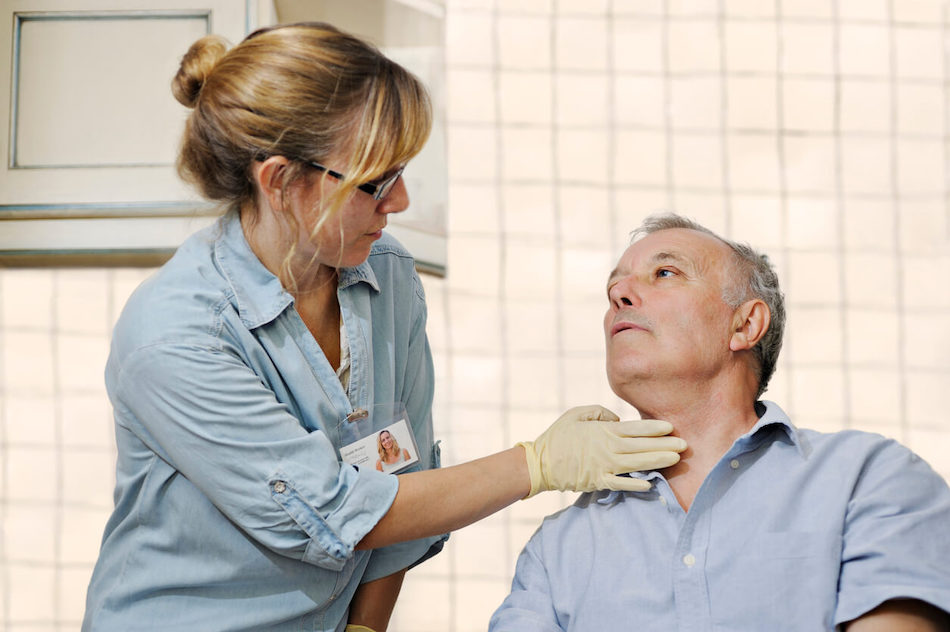When it comes to speech-language pathology, a familiar image that comes to mind is that of a speech therapist who works in a school with young children. While schools are, of course, a significant employer of SLPs, it’s important to recognize that speech-language pathologists can work in many different settings performing a wide range of roles.
“One of the great things about this perfect profession is that you can work in a variety of settings and with a variety of populations treating a wide range of disorders,” says Lorraine Book, department chair and associate clinical professor at Northeastern’s MS in Speech-Language Pathology program. “I think that’s what makes it attractive to so many people: the variety and flexibility in the field.”
Below, we take a closer look at five of the most common employment settings where speech-language pathologists typically work and highlight the key duties performed in those settings.
Interested in a Speech-Language Pathology Career?
Learn how an SLP degree can give you the skills you need to make a difference in educational and healthcare settings.
Where do Speech-Language Pathologists Work?
Some of the most common employment settings for speech-language pathologists include:
- Educational facilities
- Hospitals
- Nonresidential health care facilities
- Residential health care facilities
- Private practice
Career Options for SLPs
1. Educational Facilities
According to a report compiled by the American Speech-Language-Hearing Association (ASHA), more than 56 percent of all speech-language pathologists work in an educational setting of some sort. Specifically, 53 percent work in school settings (pre-K through 12th grade), while only three percent work in a college or university setting. Educational facilities are, by far, the largest employers of SLPs in the United States.
Pre-K Through Grade 12
For SLPs who work in pre-K through grade 12 institutions, tasks primarily focus on early intervention and providing services to students. This work includes conducting diagnostic evaluations and screenings, working with children with disabilities, and providing various services related to reading, writing, speaking, and listening to individual students or groups. SLPs are also employed in special needs classrooms in support of general education.
Speech-language pathologists employed in educational settings will also play an active role in generating learning plans for students, coordinating with other professionals, supervising the clinical practicum and fellowships of SLPs in training, and more.
College and Universities
SLPs working at the college level may provide services to college-age students in need of their services. Colleges also employ a large number of SLPs in research and teaching positions and to provide care at university-affiliated health care facilities.
2. Private Practice
Nineteen percent of all speech-language pathologists, or roughly one-fifth of the profession, work in private practice. These individuals are self-employed, running their own clinics with private clientele, or employed by a private practice.
Speech-language pathologists working in private practice provide services to clients while unaffiliated with a particular educational institution or health care facility. Though some in private practice may specialize in providing care to a specific patient population, others do not specialize.
In addition to providing care, SLPs who run their own private practice will need to be proficient in specific business areas, such as accounting, marketing, and more.
3. Nonresidential Health Care Facilities
Nonresidential health care facilities employ the third-largest percentage of SLPs. Approximately 16 percent of all speech-language pathologists work in nonresidential health care facilities such as doctor’s offices, hearing clinics, and other outpatient settings.
Speech-language pathologists working at nonresidential health care facilities may work in an outpatient clinical setting or can work with patients in their own homes in cases where patients do not require full-time care. Duties are often focused on helping patients develop or reacquire functional skills, such as speech after a stroke, and becoming more independent.
4 . Hospitals
The fourth-largest employer of speech-language pathologists in the United States is hospitals. According to ASHA, roughly 13 percent of all SLPs are employed in a hospital setting. Hospitals catering to patient populations with a higher instance of communication or voice disorders—such as children’s hospitals, military hospitals, and stroke centers—often have a particular need for SLPs.
SLPs working in hospitals help evaluate patients after traumatic injuries, accidents, or other ailments to diagnose communication, language, or swallowing disorders. They will also provide direct treatment and may generate treatment plans. SLPs in hospital settings also play an important role in educating patients, their families, and other medical team members about communication, language, and swallowing disorders.
5. Residential Health Care Facilities
Residential health care facilities such as nursing homes and assisted living facilities are fifth in terms of the percentage of speech-language pathologists that they employ. According to ASHA, 10 percent of all SLPs will work in residential health care facilities, where they cater to the elderly and those who are recovering from various medical ailments such as stroke.
Speech-language pathologists working at residential health care facilities perform many of the same tasks as those employed at hospitals and nonresidential facilities. The primary difference is that patients under their care often require additional support and oversight, as they may be suffering or recovering from more serious medical conditions.
Other Career Options in Speech Pathology
In addition to the careers listed above, a small number of SLPs will also find themselves employed in either a corporate or governmental setting.
Those who work in a corporate setting are often employed as consultants, educating other employees to become more effective communicators. They can also inform an organization of how its products or services may impact the speech and communication of its target audience.
Meanwhile, those who work in a governmental setting may operate in either an administrative or clinical capacity. In particular, public health departments will often employ SLPs to help individuals with speech, language, and swallowing disorders.
Gaining the Required Education and Training
As demonstrated above, the day-to-day activities you will be responsible for as an SLP will depend heavily on your place of employment.
“Your day-to-day work responsibilities do look different depending on the employment setting,” Book says. “In a school, for example, you’re focusing on school-aged students. But grade level is also important. Your day can look significantly different depending on whether you are employed in an elementary school—where diagnosis and early intervention are more crucial—or a high school. In a hospital, you’re looking at more medically complex cases, and you have more responsibility for treating swallowing disorders.”
With this in mind, if you know the type of career you would like to pursue before you enroll in a master’s degree program, Book recommends looking for programs that offer specialty tracks geared toward those careers. For example, at Northeastern, students interested in working with young children can choose to pursue an Early Intervention Certificate program.
“While these programs are not required in order to work in a particular capacity as an SLP, they can help you gain the foundational knowledge that you will need during your career,” Book says.
If the program you are enrolled in does not offer a specialty track, Book notes that you can still gain valuable experience in your chosen field by seeking practicum experience or fellowship experience working with that population.
Interested in becoming a Speech-Language Pathologist? Learn more about the Department of Communication Sciences and Disorders at Northeastern University.







Related Articles
4 Pressing Global Health Problems We Face Today
Global Health Careers: How Can I Make a Difference?
Compliance Specialists: Who They Are and What They Earn